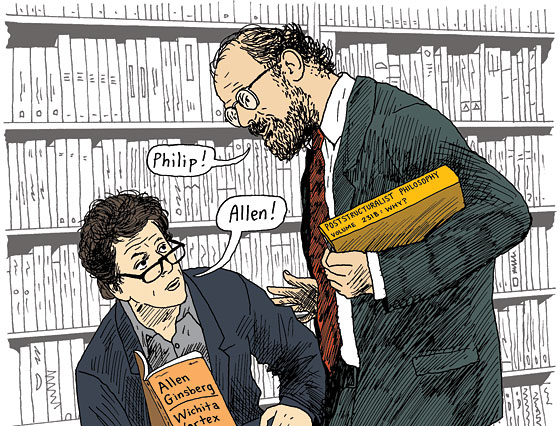
St. Mark’s Bookshop is hardly a typical bookstore; it’s where Susan Sontag used to spend most of her Sunday evenings with Annie Leibovitz and where Allen Ginsberg met Philip Glass. Even odder is its landlord, Cooper Union, an elite college that (so far, anyway) is free to students, enticed the bookstore over to Third Avenue twenty years ago, and has occasionally helped out in crisis years. This summer was different. Co-owners Bob Contant and Terry McCoy realized they were in deep trouble with sales down 35 percent, an insurmountable debt, and a full-time staff of nine that had to be laid off. They asked Cooper Union for a $5,000 rent reduction, but the college’s new management, facing its own dire straits (it may soon charge tuition), refused.
But neighbors matter—in this case, friends and neighbors like Michael Moore, Salman Rushdie, Manhattan Borough President Scott Stringer, a dogged East Village activist committee, and 44,000 people who not only signed an online petition but actually bought lots of books. By Halloween, customers and activists—famous and obscure, powerful and not—had signed their names, made high-profile appearances, and shopped enough to lift autumn sales 15 percent (books by Patti Smith and Haruki Murakami were big hits, along with the post-structuralist philosophy for which the store is famous). And at the eleventh hour, the borough president stepped in and negotiated a smaller rent reduction with Cooper Union. Stringer told Contant he intervened after witnessing the end of Coliseum Books and the Upper West Side’s Shakespeare & Co. “He felt that whole area lost part of its soul,” Contant says, “and he didn’t want to see that happen again.”
“You wring your hands when something disappears,” says Contant. “Well, here was the case where maybe there was something to be done.” And we did it.
